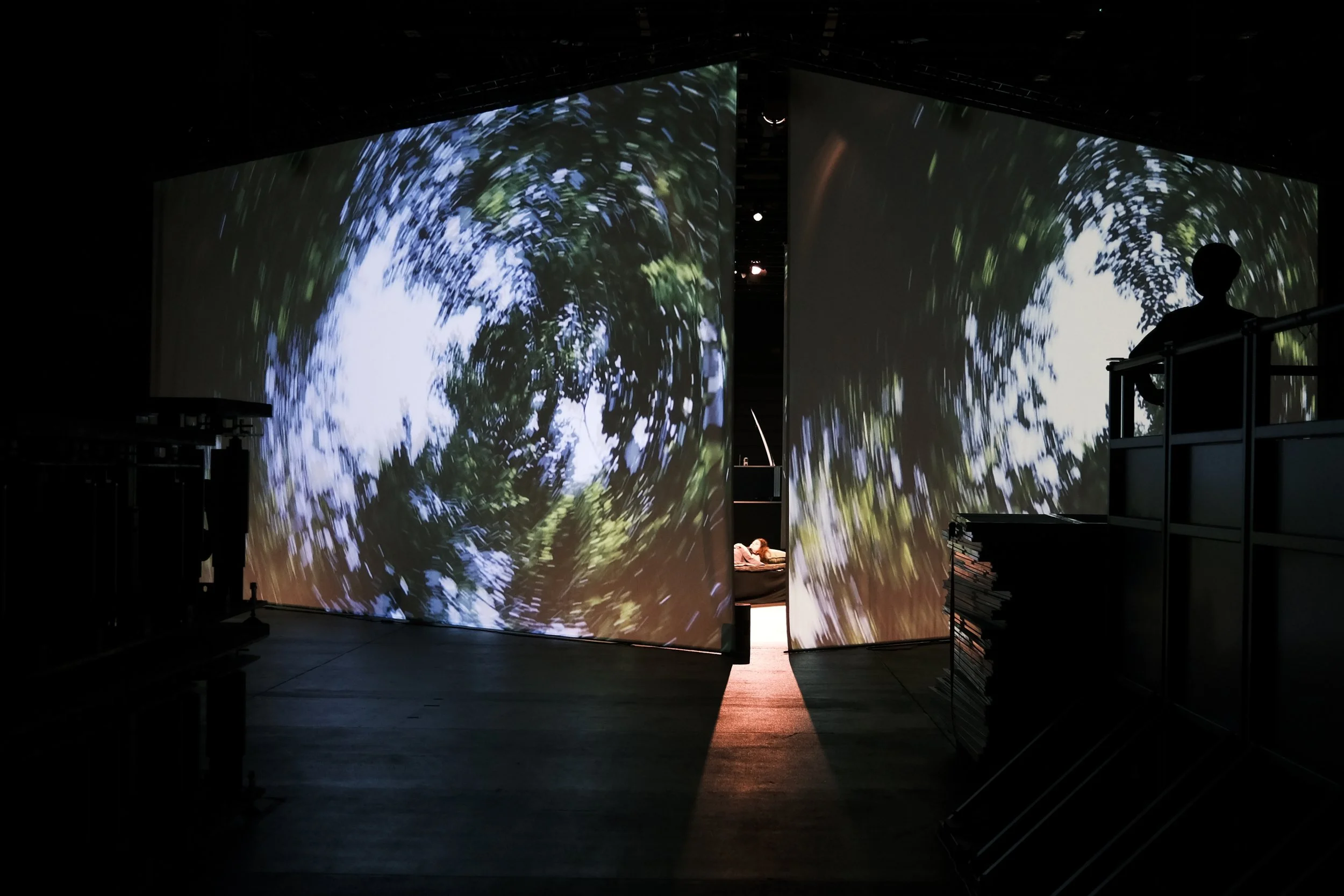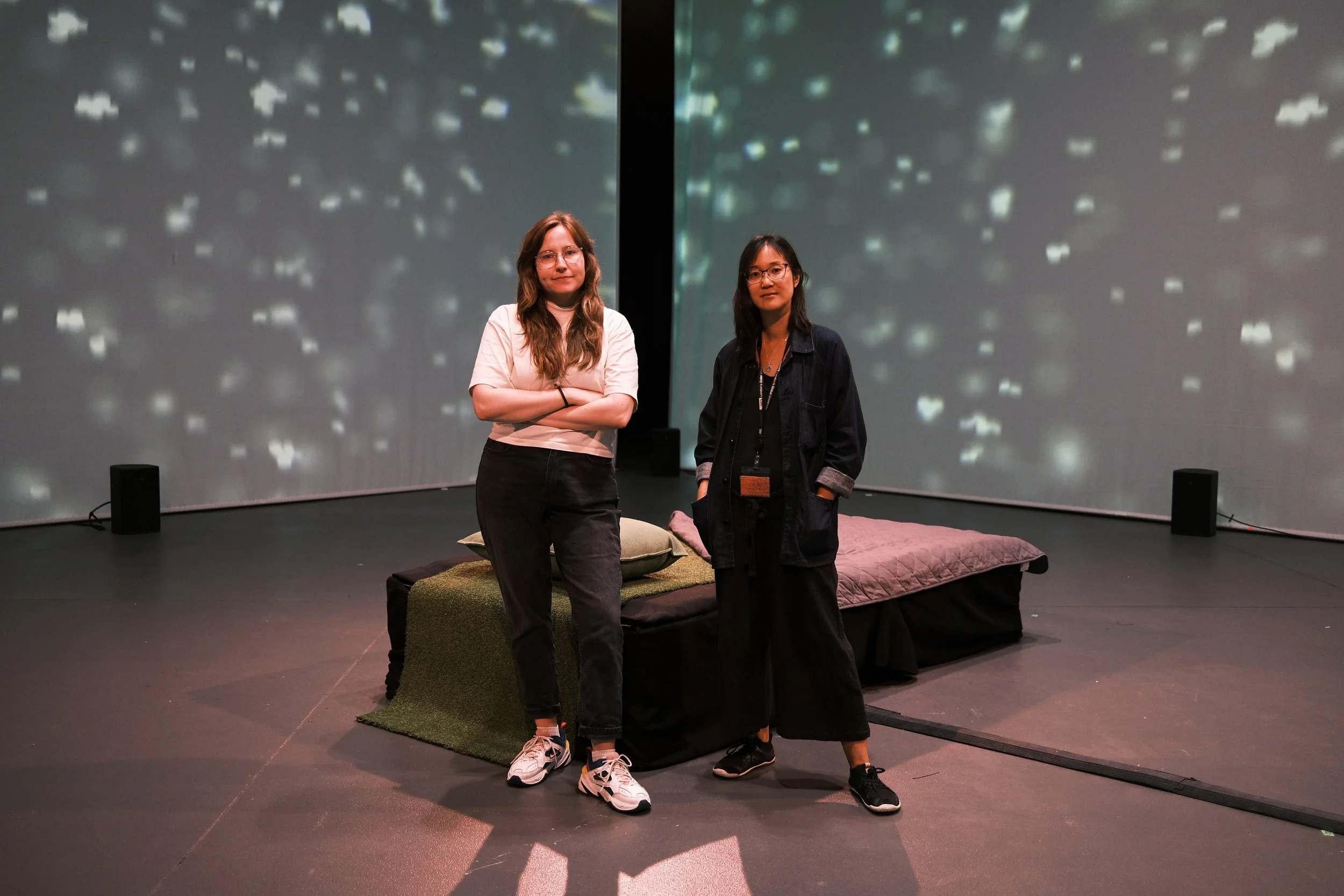experience The Empathy Machine
What does it mean to truly understand someone?
How can we best assess our visceral comprehension of worldly conditions and circumstances? In our contemporary culture, ‘empathy’ has become a covert concept: performative, pacificatory, or a reflex to discomfort. Identifying and empowering true empathy poses a formidable challenge.
As the matter of empathy lies within socioemotional limbo, it becomes more comprehensible when health and sickness are taken into account. With surges in media advocacy and growing numbers of chronic health issues bolstering awareness - the internal and external habitat of the chronically-ill body still remains relatively unknown.
Leading the way to raise awareness and understanding of the lived experience of chronic health conditions, artist and Artistic Director of Creative Health Camden, Antonia Attwood, and Arts-Sciences Programme Director of UCL PEARL, Dr. Sara Adhitya, unite creativity with technology through The Empathy Machine.
Using simulation technologies to engineer sensorial experiences corresponding with conditions like psoriasis and causally linked psoriatic arthritis, The Empathy Machine acts as an immersive chamber where the senses of sight, smell, sound, taste, touch, and proprioception are piqued.
Participants are guided into a dimly-lit space and are instructed to lie down on a rectangular patch of artificial grass centred within a towering quadrate. A weighted blanket is laid upon them, and Dr. Adhitya monitors the participants’ comfort and preparedness.
Light aggravation, miasma, auditory discord, and bristles of irritation - The Empathy Machine recreates the what-ifs of chronic health conditions. The weight of fatigue suppresses the body’s ability for self-care. The disturbing odours of saline and unwashed clothing linger. The unsubsiding irritation of the skin. The Empathy Machine proves the relentlessness of chronic health conditions. Even as the body strives to find a moment of respite, another unadulterated sensorial provocation swiftly approaches.
Across the prodigious projector screens, moving images flash sporadically - a visual jolt to the helter skelter of psoriasis and psoriatic arthritis. Nature’s pirouette quickens a distorted haze. Time escapes through the hourglass’ neck, with eyes flickering and toes squirming through cold bedsheets. Trepidation is afoot, but stones keep the body bound to the ground. An aggrandising parade of shrill sounds leaves participants under the heel of The Empathy Machine.
Antonia Attwood and Dr.Sara Adhitya
As participants arise from the simulation, a sensorial residue becomes apparent. For a moment, participants may feel the need to close their eyes and avoid stirring their bodies in order to stabilise the disequilibrium. The heightened sense of smell induces nausea, and participants wince as a pulsating headache begins to encroach.
The aftermath of The Empathy Machine is temporary, yet for participants, it offers acute insight into what chronicity, discomfort, and interruption of daily life truly mean for the chronically-ill body. It radically repositions our conjectures. Participants are astonished by the technical capabilities of The Empathy Machine and even more so by what the chronically-ill body has to manage, realising its invisible or concealed nature, and voicing a desire to offer support.
Taking the conversation beyond its four-walled structure, The Empathy Machine seeks to strengthen the bridge between patients and health practitioners. It hopes to broaden understandings of chronic health conditions beyond clinical synopses and offer improvements to patient-centric research.
The engagement of health practitioners with The Empathy Machine offers the prospect of curated medical care, supporting marginalised and minority groups in voicing their symptoms and accessing effective treatment. For relatives, friends, and colleagues, The Empathy Machine can extend the scope of support, advocacy, and quality of care.
Through these interpersonal and institutional interactions with The Empathy Machine, there is an ambition to revitalise our collective sense of empathy and awareness, driving changes in wellbeing and preventing complications for individuals living with chronic health conditions.
All Images Courtesy of The Poorly Project
Co-published by Autograph





